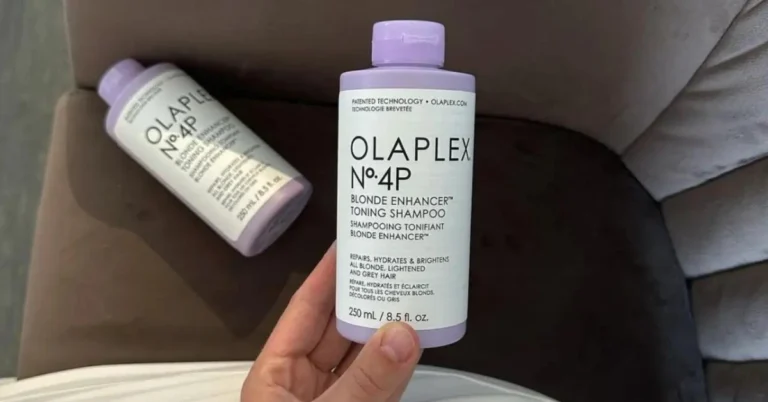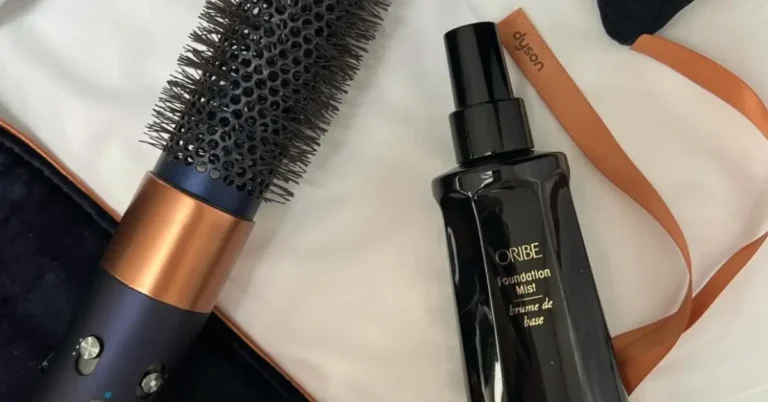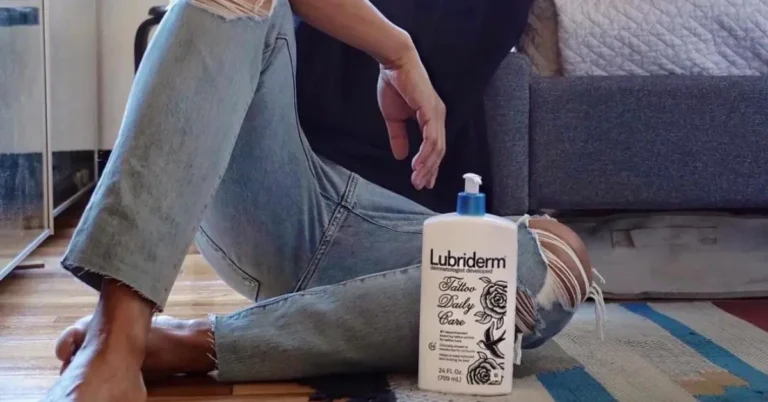Wondering if Hyaluronic Acid is effective for oily skin types? It is celebrated for its capacity to moisturize and plump the skin, making it a common ingredient in skincare regimens. However, does it have the ability to address common oily skin problems, such as increased oil production and acne?
Some experts say yes, as it hydrates without adding extra oil. In this article, we explore if Hyaluronic Acid is the solution for oily skin and any potential downsides.
Whether you’re dealing with oily skin or just want a better skincare routine, keep reading to see if Hyaluronic Acid is your game-changer.
Table of Contents
Is Hyaluronic Acid Good for Oily Skin?
Hyaluronic acid can be beneficial for oily skin as it is a humectant that can attract and hold onto water, helping to hydrate the skin. This can help to balance oil production and reduce the appearance of oily skin.
However, it’s important to use hyaluronic acid in the right amounts and not to overuse it as too much can lead to an increase in oil production and even a greasier appearance.
Hyaluronic acid can also have anti-inflammatory properties that can help to reduce redness and inflammation associated with acne. Studies and research also show that hyaluronic acid can help to improve the appearance of oily skin.
What is Oily Skin?

Oily skin is a skin type characterized by excessive sebum production. Sebum is the natural oil produced by the skin to keep it moisturized and protected.
When the sebaceous glands produce too much sebum, the skin can appear shiny, and greasy, and may be more prone to acne. A variety of factors including genetics, hormonal changes, diet, and certain skincare products can cause oily skin.
People with oily skin often struggle with keeping their skin looking matte and clear and may need to use specific skincare products to control the excess oil. Some common skincare concerns for people with oily skin include acne, enlarged pores, and blackheads.
Hydration vs. Oiliness: The Essential Balance for Oily Skin

In the pursuit of healthy and radiant skin, the terms “hydration” and “oiliness” often take center stage. While it might seem counterintuitive, even individuals with oily skin require proper hydration to maintain a balanced complexion.
Understanding the difference between hydration and oiliness is key to achieving skin that feels nourished, appears vibrant, and remains blemish-free. Let’s delve into the intricacies of these two concepts and highlight why oily skin benefits immensely from adequate hydration.
Hydration: Quenching Your Skin’s Thirst Hydration refers to infusing the skin with water to maintain its moisture content. It is a fundamental aspect of skin health that affects all skin types, including oily skin.
Water is essential for various skin functions, such as maintaining elasticity, promoting cellular turnover, and aiding in the skin’s natural barrier function. Properly hydrated skin appears plump, supple, and radiant.
Oiliness: The Natural Sebum Production Oiliness, on the other hand, is related to the skin’s production of sebum. This natural oily substance helps protect the skin from external aggressors and prevents excessive water loss.
Individuals with oily skin tend to have overactive sebaceous glands, leading to a surplus of sebum. While sebum is beneficial for skin health, an excessive amount can contribute to clogged pores, acne, and an undesirable shine.
The Balance: Why Oily Skin Needs Hydration Oily skin’s tendency to produce more sebum does not exempt it from needing proper hydration. In fact, maintaining a delicate equilibrium between hydration and oiliness is crucial for several reasons:
- Regulating Sebum Production: Dehydrated skin can trigger an overproduction of sebum as the skin tries to compensate for the lack of moisture. By keeping the skin well-hydrated, you can potentially help regulate sebum production and minimize excess oiliness.
- Preventing Breakouts: Hydrated skin is less prone to irritation and inflammation, which are common triggers for acne breakouts. A well-moisturized skin is better equipped to fend off bacteria and external pollutants that contribute to blemishes.
- Balancing Texture: Oily skin often comes with uneven texture. Hydration can help improve the skin’s texture by minimizing the appearance of pores and promoting a smoother, more refined surface.
- Enhancing Absorption of Products: Hydrated skin absorbs skincare products more effectively, allowing active ingredients to penetrate deeper and work more efficiently to address specific concerns.
Hydration vs. Oiliness: A Side-by-Side Comparison
| Aspect | Hydration | Oiliness |
|---|---|---|
| Definition | Infusing skin with water to maintain moisture. | Skin’s production of natural oily substances. |
| Importance | Essential for skin elasticity, and barrier function. | Protects the skin, but excess can lead to issues. |
| Skin Appearance | Plump, supple, radiant. | Shiny, potentially congested. |
| Role in Breakouts | Hydrated skin may have fewer breakouts. | Excessive sebum can clog pores, causing acne. |
| Product Absorption | Hydrated skin absorbs products efficiently. | Excess oiliness can hinder product absorption. |
How Hyaluronic Acid Can Benefit Oily Skin?

Hyaluronic acid can benefit oily skin in a few ways:
- Hydration: Oily skin can still be dehydrated, and using hyaluronic acid can help to hydrate the skin without adding excess oil. Hyaluronic acid is able to hold onto large amounts of water, which helps to plump up the skin and reduce the appearance of fine lines and wrinkles.
- Balancing oil production: By providing the skin with the hydration it needs, hyaluronic acid can help to balance oil production. When the skin is dehydrated, it may overcompensate by producing more oil, which can lead to a greasier appearance.
- Reducing acne: Hyaluronic acid has anti-inflammatory properties which can help to reduce redness and inflammation associated with acne.
- Studies and research show that hyaluronic acid can help to improve the appearance of oily skin. A study found that using a hyaluronic acid-based moisturizer led to a significant improvement in skin hydration and a reduction in sebum production.
Potential Drawbacks of Using Hyaluronic Acid

Hyaluronic acid for oily skin – potential drawbacks to consider:
- Overuse: If too much hyaluronic acid is used, it may lead to an increase in oil production, resulting in an even greasier appearance. It’s important to use hyaluronic acid in the right amounts and not overuse it.
- Breakouts: Some people with oily skin may experience breakouts when using hyaluronic acid due to its ability to hydrate and plump the skin, which can make pores appear larger.
- Allergic reactions: Allergic reactions to hyaluronic acid are rare, but they can occur. Signs of an allergic reaction include redness, itching, and rash.
- Interaction with other products: Hyaluronic acid can interact with certain skincare products, such as retinoids, which can cause irritation or dryness.
- Cost: Hyaluronic acid-based skincare products can be expensive, and not everyone can afford them.
Combination with Other Ingredients

Unlocking the full potential of your skincare routine involves a careful selection of ingredients that work in harmony to address your unique skin concerns.
When it comes to oily skin, combining hyaluronic acid with complementary ingredients can create a powerhouse regimen that maximizes hydration, regulates sebum production, and promotes a clear, balanced complexion.
- Niacinamide: This powerhouse ingredient boasts anti-inflammatory properties that can help soothe and calm irritated skin often associated with excess oiliness. Niacinamide and hyaluronic acid create a dynamic duo, working together to balance sebum production while maintaining optimal hydration levels.
- Salicylic Acid: A gentle exfoliant, salicylic acid penetrates the pores, effectively unclogging them and preventing acne breakouts. Pairing it with hyaluronic acid ensures that while exfoliating, your skin remains well-hydrated and nurtured.
- Glycolic Acid: For those seeking to refine their skin’s texture, glycolic acid can be a valuable addition. When paired with hyaluronic acid, the exfoliating benefits of glycolic acid are complemented by the deep hydration of hyaluronic acid, leading to smoother, more supple skin.
- Witch Hazel: Known for its astringent properties, witch hazel can help tighten pores and control excess oil production. When used alongside hyaluronic acid, witch hazel enhances the overall toning effect while hyaluronic acid ensures your skin’s hydration needs are met.
- Tea Tree Oil: Recognized for its antimicrobial properties, tea tree oil can be a beneficial addition to your routine. When combined with hyaluronic acid, it creates a well-rounded approach to addressing acne-prone oily skin, targeting blemishes while maintaining moisture.
Pro Tip: When incorporating these ingredient combinations, start slowly and observe how your skin responds. Introduce one new ingredient at a time to avoid overwhelming your skin. Remember, consistency is key to seeing the best results
My Experience

When I started taking skincare seriously, I had my doubts about hyaluronic acid and my oily skin. Turns out, it’s been a game-changer. Hyaluronic acid, the hydration champ, surprised me and became my secret weapon for that balanced, glowy skin.
Adding hyaluronic acid kicked my routine up a notch. This light serum gave my skin the hydration it craved without the greasy feel or pore-clogging drama.
With time, my skin felt plump, smooth, and naturally radiant. Those pesky fine lines? Softened. Even the skin around my eyes got in on the smooth action.
Mixing in niacinamide with hyaluronic acid? That combo rocked my skincare world, balancing oil and calming redness. Lesson learned: be consistent, and slathering on hyaluronic acid on slightly damp skin. Total game-changer.
FAQ

Which Acid is Best for Oily Skin?
Several acids can be beneficial for oily skin, including:
- Salicylic acid: This beta hydroxy acid (BHA) is a common ingredient in acne-fighting products. Salicylic acid is oil-soluble, which means it can penetrate deep into the pores to help unclog them and reduce breakouts.
- Glycolic acid: This alpha hydroxy acid (AHA) is derived from sugar cane and can help exfoliate the skin, removing dead skin cells and leaving the skin looking brighter. It also helps to reduce the appearance of pores and can improve the texture and tone of the skin.
- Lactic acid: This AHA is derived from milk and is gentler than glycolic acid. It can help to hydrate the skin, exfoliate the skin, and improve the appearance of fine lines and wrinkles.
- Citric acid: This AHA is derived from citrus fruits and can help to brighten the skin and reduce the appearance of dark spots.
Which Hyaluronic Acid is Best for Oily Skin?
There are several forms of hyaluronic acid available, and the best form for oily skin will depend on individual skin concerns and preferences.
- Low molecular weight hyaluronic acid: This form of hyaluronic acid has smaller molecules, allowing it to penetrate deeper into the skin. This form of hyaluronic acid can be more effective at hydrating the skin and may be better for oily skin.
- Sodium hyaluronate: This is a salt form of hyaluronic acid and it is considered to be less sticky than other forms of hyaluronic acid and can be easily absorbed by the skin.
- Hyaluronic acid derivatives: Some products may contain derivatives of hyaluronic acid such as Sodium Acetylated Hyaluronate or Hydrolyzed Hyaluronic Acid, they are considered to be more stable and can be easily absorbed by the skin.
Which is better for oily skin hyaluronic acid or niacinamide?

Both hyaluronic acid and niacinamide can benefit oily skin, but they work in different ways and can be used together for better results.
Hyaluronic acid is a humectant, which means it can attract and hold onto water, helping to hydrate the skin. It can help to balance oil production and reduce the appearance of fine lines and wrinkles.
Niacinamide, also known as vitamin B3, is a water-soluble vitamin that can help to improve the overall appearance of the skin. It can help to reduce the appearance of enlarged pores, improve the skin’s barrier function, and reduce redness and inflammation. It also can help to reduce the production of sebum, which is the main cause of oily skin.
Both ingredients are non-comedogenic, which means they won’t clog the pores, a common concern for those with oily skin, and they can be used together in a skincare routine to improve the overall appearance of oily skin.
Can Hyaluronic Acid Cause Acne?

Hyaluronic acid is generally considered safe for most people, including those with acne-prone skin. However, it’s possible that certain individuals may experience breakouts when using hyaluronic acid due to its ability to hydrate and plump the skin, which can make pores appear larger.
It’s also possible that if hyaluronic acid is not compatible with other skincare products or if too much of it is applied, it may cause clogging of pores, leading to acne.
Can Hyaluronic Acid Cause Oily Skin?
Hyaluronic acid is a humectant, which means it can attract and hold onto water, helping to hydrate the skin. It’s not likely that hyaluronic acid can cause oily skin.
In fact, when the skin is dehydrated, it may overcompensate by producing more oil, leading to a greasier appearance. By providing the skin with the hydration it needs, hyaluronic acid can help to balance oil production and reduce the appearance of oily skin.
However, it’s possible that if too much hyaluronic acid is used, it may lead to an increase in oil production, resulting in an even greasier appearance. This is why it’s important to use hyaluronic acid in the right amounts and not to overuse it.
What Products To Avoid If You Have Oily Skin?

If you have oily skin, there are certain skincare products that you should avoid or use with caution:
- Heavy creams and moisturizers: These types of products can make oily skin feel even oilier and can lead to clogging of pores, which can cause breakouts. Instead, opt for lightweight, oil-free moisturizers that are specifically formulated for oily skin.
- Products containing alcohol: Alcohol can dry out the skin, which can cause the skin to produce more oil. Avoid products that have high alcohol content, such as toners or astringents.
- Products with fragrances: Fragrances can irritate the skin, and some people may find it can cause breakouts. It’s best to avoid products that contain added fragrances, especially if you have sensitive skin.
- Products containing mineral oil: This is a heavy, oily ingredient that can clog the pores. It’s best to avoid products that contain mineral oil if you have oily skin.
- Products with comedogenic ingredients: Some ingredients such as coconut oil, cocoa butter, and shea butter can clog the pores and cause breakouts, especially if you have oily skin.
If you liked this blog article about the question: Is Hyaluronic Acid Good for Oily Skin, don’t forget to leave us a comment down below to tell us about your experience.




